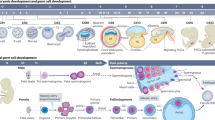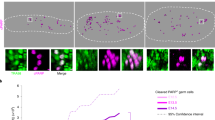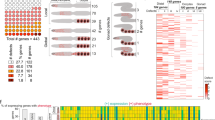Abstract
ACCORDING to Weismann (“Die Bedeutung der sexuellen Fortpflanzung für die Selektions-Theorie,” Jena, 1886), heredity does not consist in the parent having the power to reproduce offspring in its own likeness, but in the property of the germ (ovum or spermatozoon) in each generation to develop into an individual of a certain invariable type. He starts from the fact that in development the germinal cells are separate from the beginning, are portions separated off from the original fertilized ovum. He distinguishes between actual and virtual differences. Different individuals developed from successive remnants of a given Keimplasma may show actual differences; but these are due to the action of conditions affecting the particular individual during its development and life: these differences are not inherited, cannot possibly be transmitted to the offspring, because the germ-cells in this altered individual, which were originally continuous with the germ-cell from which the individual itself developed, remain entirely unaffected by the action of the conditions on the body, and when they begin to develop have exactly the same properties as the germ-cell in the generation preceding.
This is a preview of subscription content, access via your institution
Access options
Subscribe to this journal
Receive 51 print issues and online access
$199.00 per year
only $3.90 per issue
Buy this article
- Purchase on SpringerLink
- Instant access to full article PDF
Prices may be subject to local taxes which are calculated during checkout
Similar content being viewed by others
Rights and permissions
About this article
Cite this article
CUNNINGHAM, J. Weismann's Theory of Variation. Nature 39, 388–389 (1889). https://doi.org/10.1038/039388c0
Issue date:
DOI: https://doi.org/10.1038/039388c0



